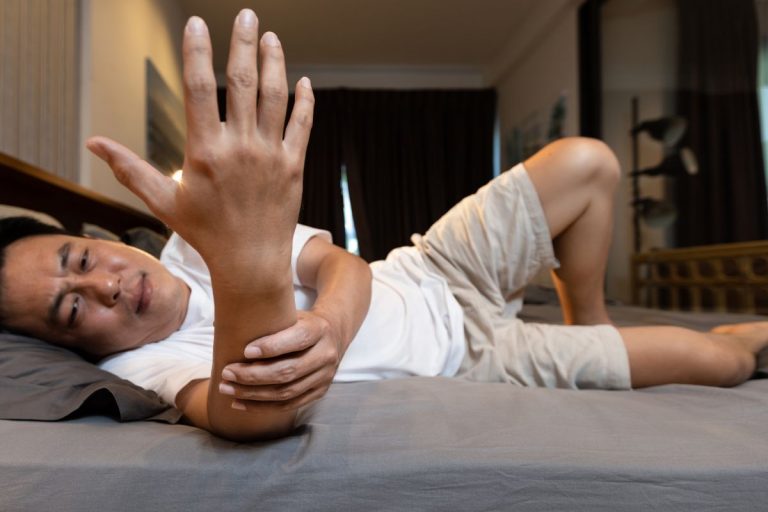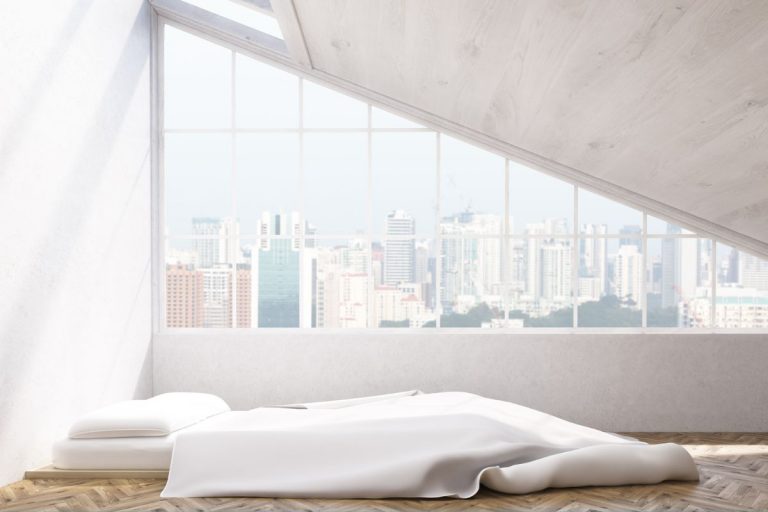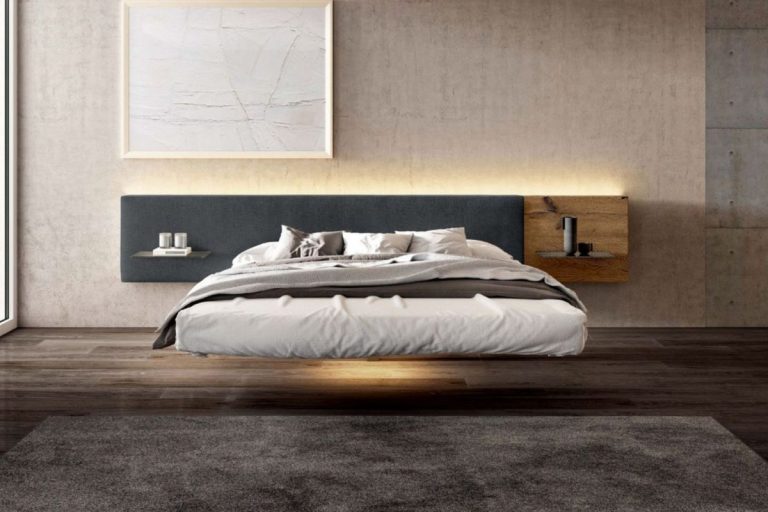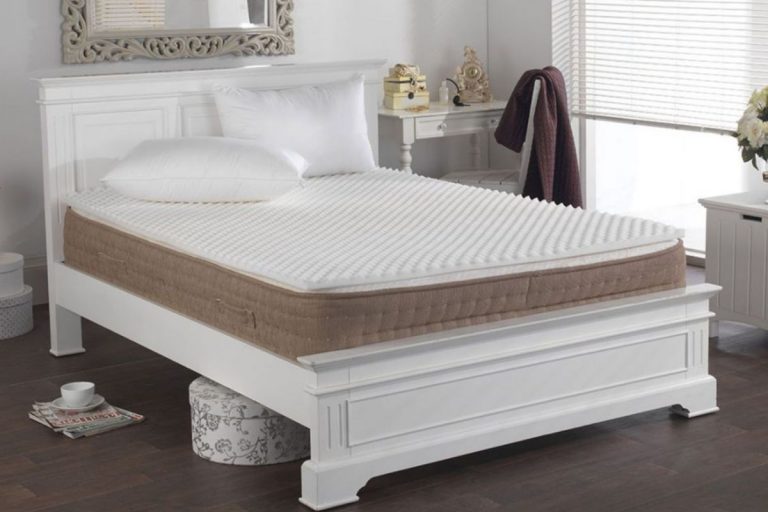We’ve all been there. It’s hot outside, you’re trying to sleep, and the only thing that will make it better is if you turn on a fan.
Jake was having a rough time sleeping. It was hot, and he just couldn’t fall asleep. He called a few friends who had similar problems, and they all told him to turn on a fan. They said it would help circulate the air around, making it easier to sleep. Jake tried this out for himself, and surprisingly enough-it worked! Ever since then, Jake has been a big fan of sleeping with a fan on. He loves the cool breeze and knowing that he’ll fall asleep so much easier now!
However, not everyone is as convinced as Jake with fans. Some people find them too loud or distracting from their sleep-which makes sense because sometimes they’re just a little too loud. Others struggle with the fact that they take up a lot of space, and might not want to be reminded of this feeling when trying to sleep.
If you’re struggling with sleeping in hot weather, fans can make your life much easier! Just keep in mind though: if it’s really warm outside or you’re not used to sleeping with a fan running, start out slowly.
And is it safe to sleep with a fan on every night? Many people will say no, but there are some pros that you might want to consider before turning off your fan.
The Pros and Cons of Sleeping with a Fan On
Sleeping with a fan on might or might not solve your issues. There is no proper way to know beforehand. That’s why we compiled this list. See if the pros and cons could affect your sleep quality.
Proper sleep is slowly becoming more of a luxury today. Adults should sleep between 7 and 8 hours per night, but 40% of adults get less than that in some areas.
But what if a simple item like a fan could solve all of your sleep issues? Some people—like our good friend Jake from the intro—swear by it.
If you think you’ll sleep better with a fan on, try it for a couple of weeks. If it fails, you can always go back to sleeping without one.
The Pros of Sleeping with a Fan On
Depending on your situation, sleeping with a fan on could be your ticket to the best sleep of your life.
Here’s a list of the pros of sleeping with a fan on:
1. They Help To cool Down the Room (But They Need Fresh Air)
A fan might be the best thing to cool down your room because it blows air across you. It can provide a pleasant breeze in hot conditions and make falling asleep much easier.
But fans can only move air around, so you need to get fresh air in the room. Otherwise, the fan will just move the current hot air around, which won’t have much of an impact.
Also Read: 7 Best Bed Cooling Systems: Say Goodbye to Sweating at Night
2. The Noise Helps some People Fall Asleep
Some people like sleeping with white noise, but not everyone does. If you do, though, it’s hard to beat the soothing sound of a fan blowing air at night. You can fall asleep much easier if all your other senses are relaxed—including your ears!
Basically, the fan’s noise acts as white noise for some people. There are studies showing that people fall asleep faster while listening to white noise.
While fans don’t produce white noise, some people love the soothing effect of their humming.
Also Read:
3. They Don’t Take Up Much Space (and They’re Cheap)
If you’re worried about where to put a fan in your room, we’ve got good news: they don’t take up much space.
The biggest fans—usually pedestal fans or box fans—are the loudest and most powerful. They also move air around at an impressive speed! Core Fans are small fans that do the job just fine. However, they’re not as powerful or loud.
They are also affordable, especially if you get a used one from someone’s yard sale. You can pick up most fan models for less than $20 on Amazon.
This means you can buy one, and if it ends up not working, you have wasted little money. It’s a minor expense that could drastically improve your sleep quality.
The Cons of Sleeping with a Fan On
Sleeping with a fan on isn’t for everyone. There are many downsides to it. It’s up to you to figure out if it’s the right solution for you.
Editor’s note: Before starting, it’s important to note that a fan will not cool you down – it can only effectively move the air around and make you feel cooler. If your window is open or your room is breezy, this will help much more than a small handheld fan.
Here are the most common cons:
1. Fans Dry the Air
Air circulated by a fan will dry and could cause some people to wake up with a dry mouth or nose.
Also, if the fan is blowing towards you while you sleep (which it probably will), then you can run into problems like your hair getting blown around by the air currents.
Since our skin keeps oils on it to keep moist, dry air can irritate it.
2. Blowing Air on Your Neck and Face can Stiffen Your Muscles
The concentrated cool air blown by the fan can make muscles tense up. The air presses on the muscles, who then have to push it away. Physics is a crazy field, isn’t it?
The best way to avoid this while keeping the advantages of sleeping with a fan on is to keep the fan away from your face and neck. Either you keep it at a bigger distance, or you point it at another area of your body.
3. You Are More Likely to Wake Up
Another con is that a fan can cause some people to wake up more often. Since it’s moving the air around, sometimes your body will get disturbed by this and you might have feel cold or hot throughout the night.
4. If the Fan is Noisy, it Can Disrupt Sleep
The noise of a fan’s motor can be really loud and will actually prevent you from falling asleep. If you’re a light sleeper, it can wake you up in the middle of your sleep cycle and make it really hard to fall back asleep.
Some people love falling asleep to the gentle humming of a fan.
5. A Fan Can Make Allergies or Asthma Are Bigger Problems
People with allergies might run into problems when sleeping next to their fan because the moving air will kick dust and pollen around, which may cause some symptoms.
If you have asthma, having a fan one could make it harder for your airways to stay open and can cause some breathing issues.
6. Electricity Consumption
Finally, if you don’t have an airflow setting or timer on your fan (or they’re broken), it could keep running all night long and drain your electricity. This can be a big problem if you’re trying to save money or live off the grid. It’s also worse for the environment.
The Best Fans to Sleep With
Different people have different opinions about sleeping with a fan on. Some people think it makes them feel cooler because the fan blows the air around. The sound of the motor can make you go to sleep, especially if you’re used to lots of noise. Other people think that it’s not safe for them to sleep with a fan on every night because it could be too noisy or take up too much space.
Some fans are good at sleeping with all night long. Let’s see what makes them so.
Portability
A portable fan is good to sleep with because it’s easy to carry around. Let’s say you can’t sleep without a fan on, and you go on holiday. Bringing your fan with you will literally be a lifesaver.
A good fan to sleep with is light and small. It’s difficult to fit a large, heavy fan in your bedroom when you’re trying to save space – which might lead you into buying a smaller one that isn’t suitable for cooling or drowning out noise!
Another reason is that it’ll take various attempts to find the perfect position for the fan. It might not be close to you or directly pointing at your face. If it’s portable, then moving the fan around is much easier for your sleep quality.
Noise Level
The fan’s noise level is very important – if it’s too loud, then you won’t be able to sleep. Luckily, portable fans are usually quiet (and also cheaper than other types). This makes them perfect for sleeping at night without waking up your partner or making lots of background noise.
Affordability
Sleeping with a fan on doesn’t have to cost an arm and leg! Portable fans are usually pretty cheap but still work great in keeping people cool while they sleep. They’re also quiet and won’t wake up the other people in your household!
A fan doesn’t have to be expensive for it to work well – as long as you find a way of positioning it near yourself without making too much noise, then that’ll do the trick.
Large Room Capacity
If you live in a room with lots of space, then it’s best to get a fan that can handle the large room. Even though portable fans are usually small and light, they might not be suitable for bigger rooms because there won’t be enough airflow from them.
Here, look into buying a desk or standing fan. This will ensure that you have a breeze going through, which is enough to cool your room down without disrupting the other people in it.
Safety
Safety matters. We’ve mentioned that an airflow setting will give you the right amount of air depending on how hot it is, but another safety feature can be a timer. If your fan has one of these, you’ll never have to worry about falling asleep with it still running – just set it and forget it!
If you don’t have an airflow setting, timer, or another way of controlling how much air is in your room (like opening a window), it’s probably best not to sleep with a fan on every night.
Alternative Ways to Stay Cool at Night
There are other things you can do to stay cool when it’s too hot.
- Purchase a mattress treated with a cooling formula. These mattresses will keep you cool even in the hottest days of the year.
- Get a cooling sheet – this is placed on top of your existing bedsheet and has special materials that make you feel cooler while sleeping. These sheets block out the warmth coming from the outside.
- Reduce the room’s exposure to the sun. By closing the curtains, turning off lights, and using a fan in your bedroom, you’re controlling how hot it is inside.
- The last way to stay cool at night without using a fan or air conditioning system is by getting an ice pack with straps. These can be put around the pillow in order to keep your head cool.
Conclusions
Fans are the simplest and cheapest option to fix sleep issues. They don’t always work, but when they do, your quality of life improves.
Fans are at their best when you combine them with other solutions. Make sure your room has access to fresh air so that the fan can move it and make it circulate. If your room is too hot, fans will be useless.
You can also make your room cooler through intelligent curtains usage. When it’s scorching outside, black curtains can block the light from coming into your room and warming it up.
Our suggestion is to try using a fan for a week. If you feel like your sleep has improved after the trial period, you can keep using it. If it hasn’t, you can either stop using it, or try to combine it with other solutions we outlined in this article.
What matters is that you find what works best for you.





